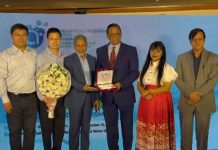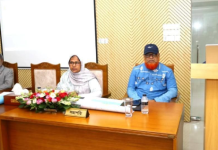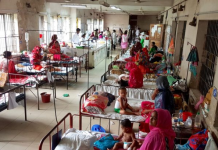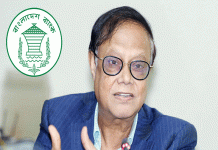
When students filled the streets of Savar in 2018 demanding safer roads, few could imagine that a young man named Prince Ghosh would emerge as one of the defining voices of a generation. What began with a hundred students soon turned into a youth uprising that echoed across Bangladesh — calling for accountability, safety, and justice. ⸻ (1)- The Beginning of a Movement: The protests did not begin by chance.
In the wake of a tragic road accident that claimed the lives of students, Prince Ghosh and his close friend and brother Turag Mazumder took the first step — organizing Savar’s earliest road safety demonstrations. It started small — a handful of students, some homemade posters, and deep frustration. But under their leadership, the movement grew rapidly. Schools and colleges across the city joined in. Prince led the marches, coordinated logistics, and documented the events — capturing photographs, interviews, and footage that would later appear in newspapers. Despite pressure from local authorities and tense confrontations with police, he insisted the protests remain peaceful, disciplined, and unified. “The fear was real,” he recalls. “But when you see injustice in front of you, silence becomes impossible.” By sunset, hundreds of students filled the roads — a sea of white uniforms demanding change. It was no longer just a protest. It was a movement — one that carried the anger, grief, and hope of an entire generation. ⸻ (2)-/Facing Threats — The Anti-Rape Movement of 2020: In 2020, when horrifying incidents of sexual violence sparked nationwide outrage, Prince once again rose to lead. This time, he organized the anti-rape movement in Savar, which quickly became one of the region’s largest youth protests. Over 2,000 citizens gathered under his coordination — men, women, students, and activists — united under one banner: justice. But standing up to entrenched power came with consequences. Prince received repeated warnings and was reportedly threatened by members of law enforcement and intelligence agencies, including the police and security forces. Still, he refused to step back. “It was dangerous, but fear can’t stop what’s right,” he says. “If we don’t speak, who will?” Even amid intimidation, he continued to lead peaceful demonstrations and community dialogues. And when the crowds dispersed, he transformed outrage into action — launching self-defense programs for more than 12,000 girls alongside his sister Astha. Their initiative turned protest into empowerment — a message that real resistance begins with education and strength. ⸻ (3)-Serving Humanity When the World Stopped: When the COVID-19 pandemic hit, Prince’s activism took on a new form. While most were confined indoors, he looked outward — to the hungry, the stranded, and even the voiceless. He and his team fed street dogs in Savar and monkeys in Dhamrai, as lockdowns cut off their usual food sources. At the same time, he launched a series of innovative relief programs under the banner of the “1 Taka Projects.” Through 1 Takar Dokan, 1 Takar Chikitsha, 1 Takar Super Shop, 1 Takar Vasoman Dokan (during floods), and 1 Takar Bufe, Prince sold food and medical care for just one taka — not as charity, but as dignity. “I took one taka so people wouldn’t feel they were receiving donations,” he explains. “They could hold their heads high and say, we bought our food.” He also established the Savar Blood Bank, which has since managed blood donations for nearly 3,000 patients, building a community-driven network that saves lives daily. ⸻ (4)-
Healing and Leading: Prince’s leadership is defined by both courage and care. During his medical studies abroad, a fellow student suffered a severe accident requiring 1.2 million taka in emergency treatment. From thousands of kilometres away, Prince organized a fundraising drive, raising 600,000 taka overnight and overseeing the patient’s recovery. His ability to mobilize people — in protest or in crisis — is what sets him apart. ⸻ (5)-From Streets to Screens: To reach wider audiences, Prince turned to digital platforms. Through his channel, Medspiration by Prince Ghosh, he creates videos on health, psychology, and social awareness. His messages have reached millions worldwide — with one video surpassing 16 million views. “Activism has changed,” he says. “It’s not just about protests anymore. It’s about conversations that inspire people to act — wherever they are.” ⸻ (6)-A New Kind of Leadership: From organizing movements that faced state pressure to creating humanitarian models that preserved dignity, Prince Ghosh represents a new generation of Bangladeshi leadership — grounded in empathy, action, and integrity. “Our responsibility is to make society safe and inclusive,” he says. “Change begins with courage, and it lasts when people believe in it.” From the crowded streets of Savar to the digital platforms viewed by millions, Prince’s journey proves that one determined individual — with a cause, a conscience, and a camera — can spark change that no force can silence.






